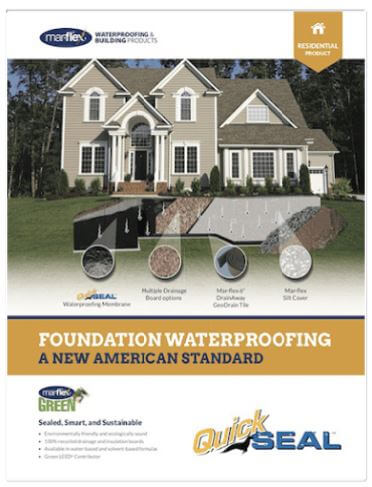We already answered questions about the best method for choosing basement waterproofing products, so we are interpreting this question to mean, “how should I approach the task of waterproofing a basement?”
The only ideal time to waterproof a basement, though you might not think of this initially unless you live and breath waterproofing like we do, is during the initial construction of a building. When waterproofing a basement, the waterproofing membrane and drainage board need to be applied to the outer wall of the structure. If the foundation is already buried, there is no way to reach it without digging up the entire below grade level. We wish we could be everywhere, ensuring no structure was ever built without a long-lasting waterproofing system. Unfortunately, some builders still don’t invest in modern basement protection products. If your basement has sprung a leak, you’ll need to contact basement repair specialists to address the problem. We recommend the team at DryPatrol.
It is not impossible to waterproof a building that has already been constructed, however, is just isn’t the most cost effective way to approach the problem. Many buildings that were meant to last the test of time were constructed before basement waterproofing technologies, such as our top-of-the-line ShockWave drainage board, were developed. In these cases, or others where the building’s value merits the expense, the foundation can be exposed, have a waterproofing system installed and then be reburied.
Looking beyond waterproofing a building’s substructure, you may also be interested in an above ground waterproofing material. A waterproofing membrane can vastly reduce weathering damage to a building. Fusion UV and ProVention 363, our next generation green waterproofing membranes for residential and commercial use respectively, can be sprayed above ground, dry grey (rather than black) and can be applied to poured walls, poured walls, cinder block, stucco, steel, wood and galvanized metal. The versatility of these LEED compatible products reflects Mar-flex’s commitment to innovation. Our research team develops products that move the residential and commercial business industries forward.
If you have any other questions about basement waterproofing or poured wall foundations, give Mar-flex a call. We have decades of experience, and we want to put it to good use helping people like you.
